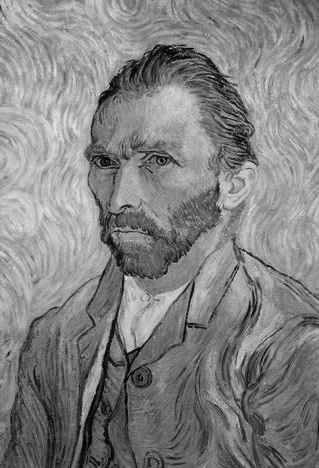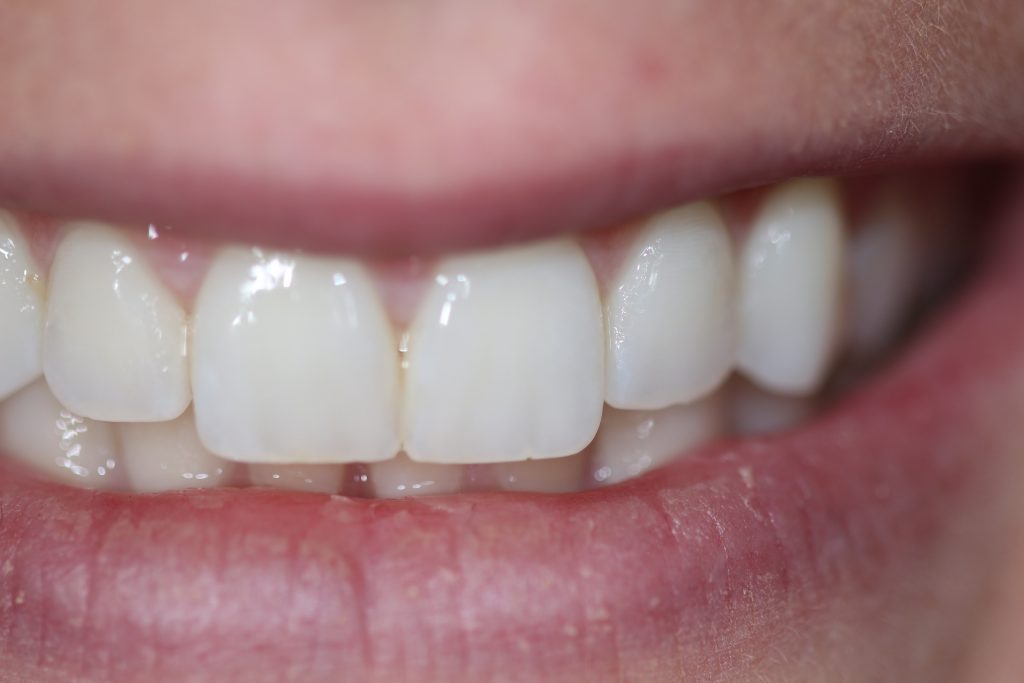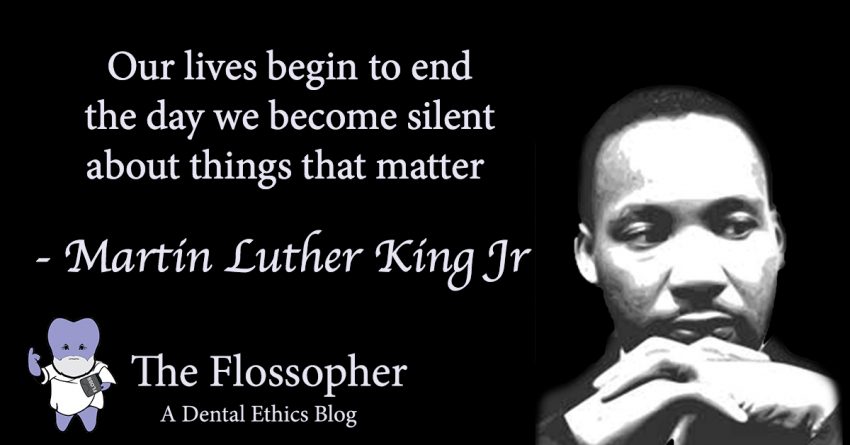Why People Think Dentistry Matters
It becomes all too obvious that you need to go to the dentist when you have tooth pain or have a broken front tooth. This, however, makes dentistry matter conditionally. This means that something only matters based on specific subjective conditions and situations. Something that matters conditionally does not necessarily matter in an absolute sense. This article will explore when something matters objectively and give a defense for importance of dentistry in daily life.

The Matter With What Matters
Figuring out what matters involves a rational judgement. What matters in an objective sense has absolute worth to all whom can recognize value while subjective worth is only recognizable to relevant subjects. Many think they recognize value in a dark painting or a mellow song. So-called meaning is ineffable; we cannot put words to how we feel. Ineffable content may seem meaningful to an agent, but if she cannot describe how she feels then she cannot make an evaluative judgement of such content. Thus, we cannot recognize how much a thing is worth and, hence, cannot explain why it matters. Valued meaning can only be found in content that can be evaluated by formalistic reason.

One may object by pointing out that an agent can fail to recognize the objective worth of a thing even when it has inherent worth. A child may throw away a baby tooth without understanding she can get money from the tooth fairy. It would appear the objective worth is ultimately subjective. We must however distinguish between intrinsic worth and apparent worth. A child has not learned the worth of a baby tooth and simply failed to make the rational judgement. Meaning must be understood as universal through a rational understanding to have intrinsic worth, not only apparent worth. Apparent worth can delude the non-inquisitive observer.
What constitutes objective worth is its ability to be universal to all beings that can recognize worth through a rational prescription. Those that cannot recognize intrinsic worth are not agents who are able to have objective meaning. Feelings are unique to the subjective experience but reason, as it can be quantitative, can be translated to others. It is up to the subject to use reason to recognize universal worth, not feel its apparent worth; correct reason does not delude.
Transcendental Goods in General

Kant claimed that the only thing that has unqualified worth (objective worth in so much as nothing can be said to be worth more) is a good will. A good will is one that can be universalized to all rational agents as a necessary rule. Universality allows for recognition by other rational agents and necessity means it must be respected. A universal will conceived on a necessary rule (a law) must be recognizable to all rational agents and must be respected as long as they are rational (rational in the sense of using correct practical reason). The possibility of universal and necessary rules may be doubted but for the purpose of this article it is assumed categorical imperatives exist.
Kant uses the term transcendental to refer to the conditions that make a certain state of affairs possible. The conditions that are transcendental to a universal and necessary will are themselves universal and necessary. Otherwise, they could not create a universal or necessary will; they would create a particular and contingent rule. Transcendental criteria for a good will obtain objective worth since a good will is regarded to have objective worth.
Since a good will is said to have objective worth, it is said to really matter. This is because everyone (as long as they are rationally evaluating) can recognize the worth (universality) and must recognize as above all other (necessity). Transcendental criteria thus also have objective worth and so can be said to really matter.
Education – Transcendental Criteria
Let us now discuss the dental aspects of transcendental goods (pun intended). The first is information or education necessary to make moral judgements. When it comes to making correct judgements about oral health, patients do not know what oral health is and how to achieve it. Dental professionals are important to the patient’s decision making ability because they provide the necessary information to make moral judgements concerning dental needs.
While dentistry is important because they offer dental services patients could not get anywhere else, dentistry objectively matters because it provides a transcendental service to the good will. Without the field of dentistry, patients cannot make moral decisions about oral care at all since they lack the knowledge to do so.
It is important to recognize that transcendental factors do not just affect making ethical decisions concerning oral health (e.g. choosing between an implant or bridge). Dental health is deeply intertwined with daily life in general and it is daily life that ultimately matters. Teeth are important for personal relationships, employment, and nutritional health. The interplay between teeth and daily life do not only make transcendental factors important in moral decisions concerning teeth but daily life as well.
Anxiety – Transcendental Criteria
A person cannot will to seek dental care for their benefit if they are anxious about dental care. The second important reason why dentistry matters in general is its ability to remove anxiety in seeking treatment.

This is especially apparent in the treatment of children. Getting dental care when a child has an infection is just as important as when the child is getting used to going to the dentist for the first time. The child learns about the practice of going to the dentistry, without which she does not become comfortable seeking the guidance of dental professionals in oral care.
Health – Transcendental Criteria
Health is transcendental for well-being. This means that maintaining health is always important for any individual will. Maybe a patient is more concerned about her upcoming wedding than her dental cleaning. If she went to her dental appointment the dentist would have caught a lurking dental infection. Since the patient thought the end goal was more important, she ended up with a big dental infection and missed her wedding anyway. Health allows us to seek our own happiness. While the end goal is what is most important, health is transcendental (makes for the possibility) for achieving that goal.
The third factor that makes dentistry matter objectively is its ability to prevent dental disease and promote oral health. Teeth are often overlooked but play important roles in communication, relationships, and daily function. Without dentistry, people miss out on health and so fail to obtain what matters to them. Dentistry matters because health is essential to what matters in daily life.

Summary
Objective meaning is a rational judgement using universal principles. A will following the categorical imperative (a universal and necessary rule) establishes its content (desire) as having objective worth. Transcendental criteria (what makes a certain state of affairs possible) for a good will are themselves universal and necessary so must also be regarded as having objective worth or meaning. Dentistry provides education, removes barrier to care, and prevents disease while maintaining health. These factors are all transcendental to making moral decisions that are worth taking. Thus, dentistry matters in some ways as it is essential to living a fulfilled life.
For dentists, it is important to recognize why we matter in general. It is not our clinical skills, it is not that we take someone’s insurance, or the number of Instagram followers. Dentistry matters when it educates, removes barriers to care, and promotes health. We are essential to the moral decision making process of patients. Dentistry thus can be said to have objective worth.
Author
Dr. Vishnu Burla, DDS, BA Philosophy
Further Reading
Why be a Good Dentist? I explain why moral principles must be universal to receive absolute recognization and necessary to be obligatory.
Grounding of the Metaphysics of Morals by Immanuel Kant. Read about the foundations of the Categorical Imperative.
Critique of Pure Reason by Immanuel Kant. Check out the Kant’s reasoning for transcendental idealism.

Facebook Comments